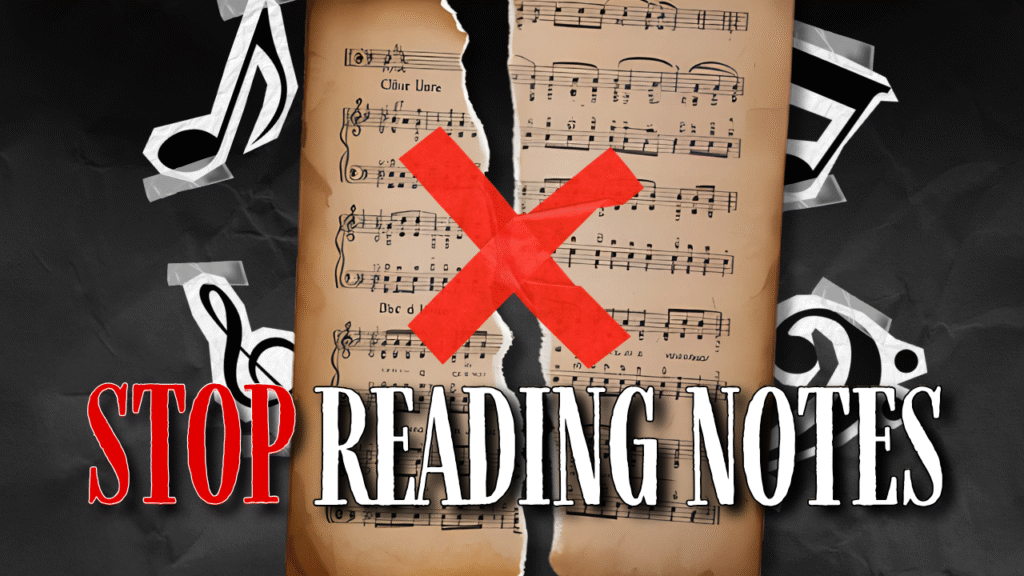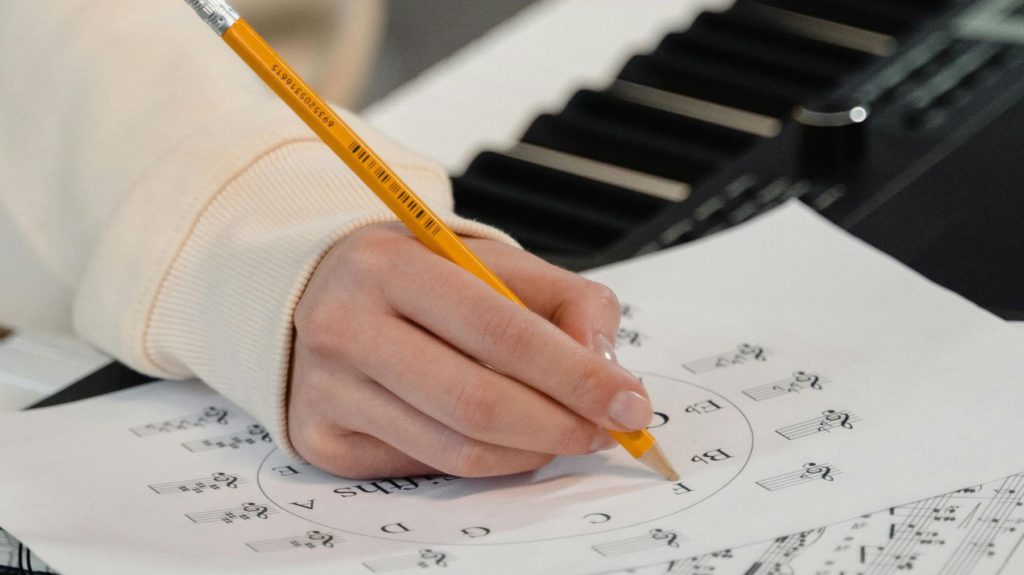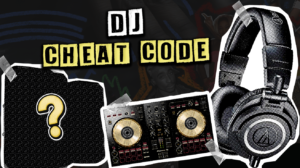
Musical mastery doesn’t happen by accident—it’s the result of deliberate choices that separate bedroom noodlers from stage-ready performers. Think of it like leveling up in a video game, except instead of collecting coins, you’re collecting skills that actually matter. The difference between musicians who plateau after two years and those who keep evolving lies in understanding these fundamental principles. These aren’t quick hacks or overnight transformations. They’re time-tested strategies that turn musical curiosity into genuine expertise, whether you’re wielding a Telecaster or tickling the ivories.
Foundational Music Theory: The Decoder Ring

Music theory isn’t academic busy work—it’s the decoder ring that reveals how music actually functions. Many musicians hit frustrating plateaus when playing solely by ear, unable to progress without understanding the underlying structures that govern musical logic.
Understanding chord progressions, key relationships, and harmonic functions bridges crucial knowledge gaps that transform random techniques into coherent musical language. Theory doesn’t constrain creativity; it provides the framework that makes innovation possible. Master diatonic chord substitutions and suddenly that standard progression becomes a launching pad for harmonic exploration rather than a rigid pattern you’re stuck repeating. If you’re looking to channel this theory into your own music, here’s how to write songs better using proven methods.
Critical Listening: Your Musical Microscope

Critical listening separates casual music consumption from professional development—like the difference between scrolling through TikTok and actually reading a book. Carve out 15-20 minutes daily for focused listening sessions, analyzing harmonic structures and phrasing choices that make great performances memorable.
When approaching complex material, repeated deep listening sessions reveal layers you’ll miss on first pass. That jazz standard that sounds impossibly intricate becomes manageable once you hear how the bassist walks through chord changes or how the drummer’s ghost notes create pocket. Document your observations in a listening journal. This practice sharpens your ear while building a mental library of musical concepts you can deploy in your own playing.
In-Depth Learning: Archaeology Over Geography

Surface-level learning is musical fast food—filling but ultimately unsatisfying. True development requires excavating the DNA of compositions to understand their architectural design. Dedicate one month to transcribing a single solo note-for-note, examining how harmonic structures support melodic ideas—think Billie Eilish spending countless hours perfecting her bedroom production techniques.
This archaeological approach reveals connections between seemingly unrelated songs and unlocks new voicings you’d never discover through casual playing. When you understand why certain notes work against specific chords, you’re not just playing music—you’re speaking it fluently. The guitarist who dissects blues progressions discovers improvisational possibilities that escaped them when they only knew surface-level patterns.
Collaborative Playing: The Musical Crossfit

Solo practice builds your chops, but collaborative playing throws you into musical boot camp where real growth happens. Start small—find one musician slightly better than you for monthly jam sessions, or join local open mic nights to test your skills under pressure.
The collaborative environment creates natural accountability while developing the trust essential for authentic performance. You learn to navigate musical conversation in real-time—when to lead, when to follow, when to leave space for others to shine. Weekly band practice becomes your laboratory for experimenting with dynamics and learning to read the room. Musical communities provide collective wisdom that compresses years of discovery into months of accelerated growth, forcing you to adapt faster than any metronome ever could.
Leveraging Personal Strengths: Your Musical Fingerprint

The streaming era has proven one thing definitively: authenticity cuts through algorithmic noise better than technical perfection. Musical improvement accelerates when you emphasize unique qualities rather than obsessing over every perceived weakness—consider how Anderson .Paak’s versatility across drums, vocals, and production created a signature sound that defies easy categorization.
Identify what makes your playing distinctive through focused weekly self-assessment sessions. Your tone, rhythmic approach, melodic sensibility—these become your calling cards. See how legendary players crafted their unique identities by exploring the top 100 greatest guitarists. Focus on cultivating your musical fingerprint rather than chasing someone else’s definition of perfection. This approach creates something genuinely original while accelerating development in ways that feel natural and rewarding rather than forced.





















